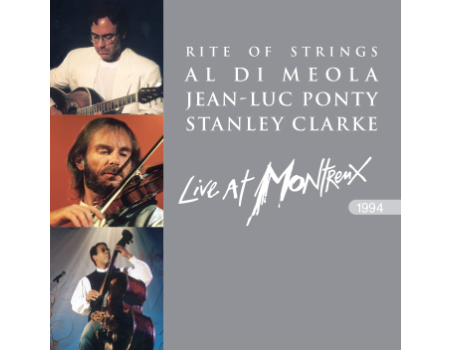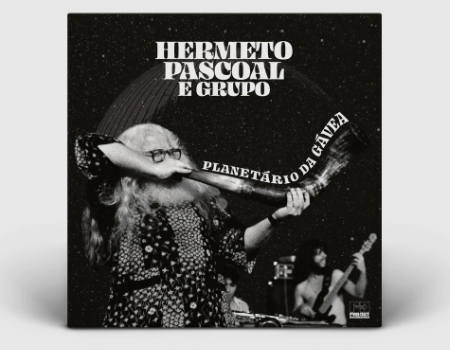A new 1994 archival concert release from the archives of The Montreux Jazz Festival called Rite of Strings – Live at Montreux 1994 features the dynamic acoustic trio of Stanley Clarke on bass, Al Di Meola on guitar and Jean-Luc Ponty on violin.
A magical recording by a magicial trio, these three super-musicians work really well together, complimenting and supporting one another while seemingly keeping each other in musical check. All of these players are master musicians and can run high speed circles around each another if they wanted to.
But they don’t…
And there-in lies the joy of why Mercury Records’ new two-CD set titled Rite of Strings – Live at Montreux 1994 works for me as an end-to-end album listen. Here, these jazz fusion super-stars lift and inspire one-another, allowing for moments of technical brilliance where their shredding-inclined nimble fingers can sparkle, yet forcing each other to back off and give the music the necessary space to breathe.
No one steps on any musical toes (if you will), something I can’t always say about other similar powerhouse combos like this which I’ve seen in both rock and jazz worlds. Sometimes fewer notes can say a lot more in communicating and connecting with an audience.
OnRite of Strings – Live at Montreux 1994each artist gets a tasty solo spotlight. I especially liked Mr. Di Meola’s “Summer Country Song.” Mr. Ponty’s ethereal “Eulogy To Oscar Romero” finds the violinist masterfully employing digital delays and other special effects.
Now, I have to admit that prior to this CD release of Rite of Strings – Live at Montreux 1994 I’d completely missed out on the DVD release of this concert (released in 2005, an especially bad year for me personally, so I’m not surprised it slipped through the cracks).
Perhaps more surprising was discovering that this trio released a studio album (using the same super-group title, Rite Of Strings) in 1995, which I’ve honestly never seen before! I think I may know why too: it was issued by the decidedly non-Jazz leaning record label I.R.S. Records just before it closed down in 1996. My guess is — and this just is a guess, so take it for all that is worth — that the combination of a jazz fusion album coming out from a rock oriented label which wasn’t in the best of health business-wise resulted in a very weak commercial release.
I hope I’m wrong about that — the album was apparently a critical success (at least according to the Wiki). One of these days I hope to find a copy.
Until then, I’ll be enjoying this great trio recording in all its live-without-a-net glory on this fine new CD set. If you have access to any of the high resolution streaming services you can find Rite of Strings – Live at Montreux 1994 on Qobuz in 48-kHz, 24-bit fidelity (click here), on Tidal in MQA (click here) and on Apple Music Lossless (click here).
You should check out Rite of Strings – Live at Montreux 1994 if you love any of these artists. This is the good stuff.














